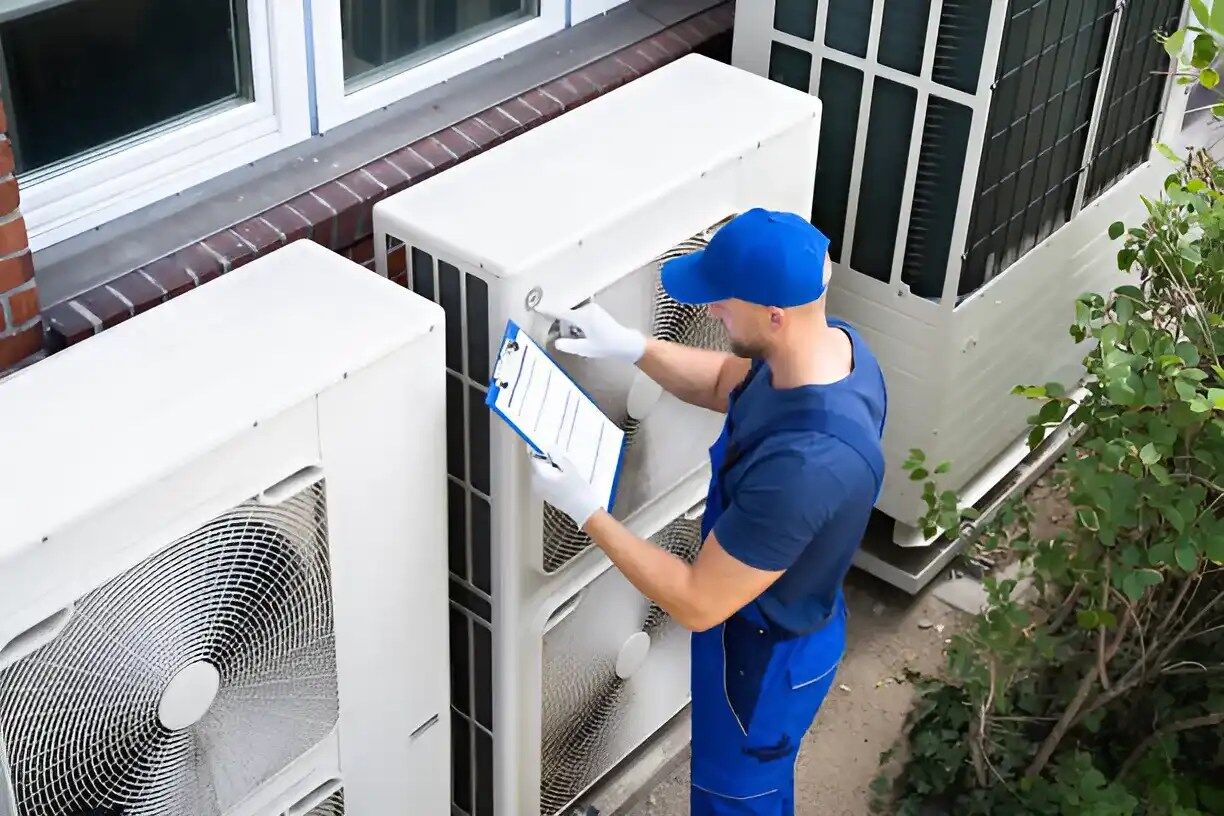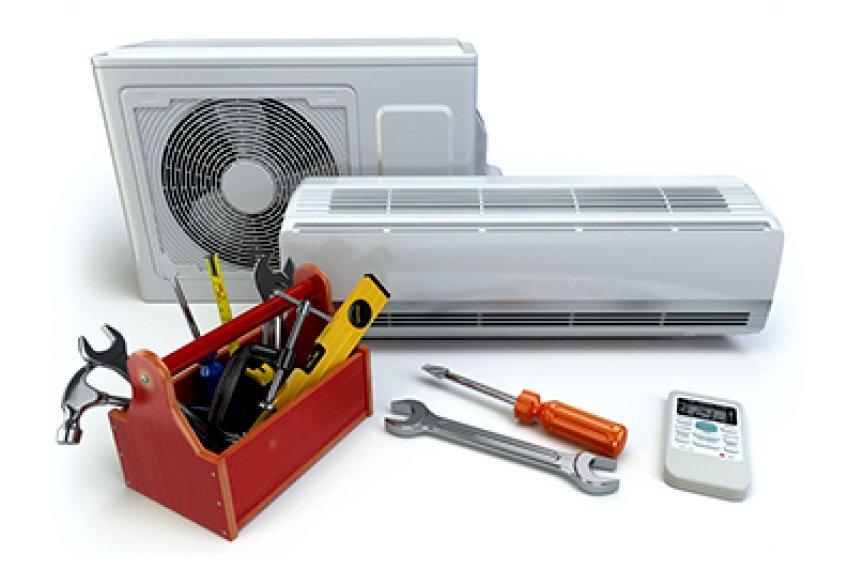The Only Guide to Repair Air Conditioner Near Me
The Only Guide to Repair Air Conditioner Near Me
Blog Article
A Biased View of Air Conditioning Repair
Repair Air Conditioner Near Me: Expert Cooling System Remediation Ensures Your Home Stays Comfortable Throughout The Year
Kinds Of Air Conditioning Systems
When taking on air conditioning repair work, comprehending the kind of air conditioning system you're handling can conserve time, cash, and irritation. Ever questioned why some systems cool a room faster than others? Or why certain systems appear to break down more often? Let's peel back the layers.
Central Air Conditioning
Things about Air Conditioning Repair Near Me
Envision a cool breeze streaming through an entire home, whispering comfort into every corner. Central air conditioning systems do exactly that. They use a network of ducts to check here distribute cooled air, depending on a compressor and condenser outside, coupled with an evaporator coil inside. When this complex beast falters, determining the problem can be like discovering a needle in a haystack.
Split Systems

Split systems are a popular choice for many homes-- part indoor system, part outside compressor. They use versatility and effectiveness, however their dual nature implies repair work can involve either component. Have you ever heard a weird sound outside your house only to discover the indoor unit isn't cooling? That's a timeless sign of a split system problem.
Not known Facts About Air Conditioner Repair Near Me
Window Units
These compact warriors fight summer season heat by fitting comfortably into a window frame. They combine all components into a single box. Their simplicity often implies less repair headaches, but overlooking filters or permitting particles accumulation can lead to lessened efficiency or breakdowns.
Ductless Mini-Splits
Air Conditioner Repair Near Me for Beginners
Ductless systems bypass ductwork entirely, making them ideal for homes without existing ventilation. They're quiet, efficient, and surprisingly resilient. Yet, when repair work are required, service technicians need to be adept at handling refrigerant lines and electrical connections-- no little feat.
Quick Referral Table
| Type | Key Features | Typical Repair Work Issues |
|---|---|---|
| Central air conditioning | Ductwork, whole-house cooling | Duct leaks, compressor failure |
| Split System | Indoor & & outdoor systems | Refrigerant leaks, fan motor problems |
| Window Unit | All-in-one, simple installation | Dirty filters, electrical faults |
| Ductless Mini-Split | No ducts, zoned cooling | Line leakages, sensor breakdowns |
7 Simple Techniques For Air Conditioner Repair Near Me
Deciphering one of the most Frequent AC Issues
Have you ever questioned why your air conditioner suddenly stops cooling during a sweltering afternoon? One typical offender is a dirty or clogged up air filter. This sneaky bad guy limits air flow, requiring your system to work overtime, which not only minimizes performance but can likewise lead to early breakdowns. Envision attempting to breathe through a headscarf soaked in dust-- it's exhausting!
Another frequent misstep is refrigerant leaks. These unnoticeable leaks do not just decrease cooling power however can likewise harm the compressor, the heart of your AC system. How frequently do you inspect for uncommon hissing noises or ice development on the coils? Capturing these signs early can save you from pricey repairs down the line.
Beyond the Fundamentals: Lesser-Known Issues
Ac Repair Near Me for Beginners
In some cases, the thermostat itself is the troublemaker. Miscalibrated or faulty thermostats send combined signals, triggering the air conditioning to cycle erratically. Ever experienced your a/c turning on and off in rapid succession? That's called short biking, a sneaky efficiency drainer that can wear elements much faster than you 'd anticipate.
Electrical problems, such as used circuitry or a malfunctioning capacitor, might lurk underneath the surface. Air Conditioning Repair. These often manifest as air conditioning units failing to begin or unexpectedly shutting down. An expert eye understands to check these components with accuracy tools, something a casual glimpse won't reveal
Professional Tips for Diagnosing Common A/c Problems
Ac Repair Near Me for Dummies
- Check and replace air filters regularly-- every 1 to 3 months depending on usage and environment.
- Listen for uncommon sounds like rattling or buzzing that might indicate loose parts or electrical faults.
- Check the outdoor unit for debris or obstructions that hinder airflow and trigger getting too hot.
- Search for frost accumulation on evaporator coils, a tip towards refrigerant problems or airflow constraints.
- Test the thermostat settings and recalibrate if the temperature readings feel off.
Quick Referral Table: Manifestation & & Probable Triggers

| Symptom | Probable Cause | Professional Suggestion |
|---|---|---|
| Warm air blowing | Low refrigerant or filthy coils | Clean coils and inspect for leaks immediately |
| Short biking | Thermostat issues or large unit | Adjust thermostat settings and consult sizing standards |
| Unit won't begin | Electrical faults or capacitor failure | Test electrical wiring and change capacitors as needed |
| Water leakage | Blocked drain line or frozen evaporator | Clear drain lines and check for coil icing |
DO IT YOURSELF A/c Maintenance Tips
The Ultimate Guide To Ac Repair Near Me
Ever observed your air conditioner sputtering like an old engine on a hot summertime day? Overlooking subtle indications frequently indicates more than just a sweaty afternoon-- it's a start to unexpected AC repair work expenses. But what if you could capture those whispers before they develop into wails? Routine do it yourself upkeep can be your first line of defense.
Basic Steps to Keep Your Air Conditioning Running Efficiently
The Facts About Ac Fixing Revealed
- Clean or Replace Filters: A stopped up filter resembles attempting to breathe through a headscarf. Every 1-3 months, examine and swap out your filters. It improves air flow and performance, preventing compressor strain.
- Examine the Condenser Coils: Dust and debris function as undetectable blankets smothering your system's cooling power. Carefully brush or vacuum the coils, but prevent severe chemicals that may deteriorate the metal.
- Examine the Drain Line: When was the last time you glanced at your drain pan? A stopped up drain can cause water leaks and foster mold development. Flushing it with a vinegar solution monthly keeps the circulation clear.
- Seal and Insulate: Are your ductworks whispering leaks? Sealing gaps with mastic or foil tape improves effectiveness and reduce unequal cooling.
Pro Tips Beyond the Essentials
- Measure your unit's voltage to capture subtle electrical wear before it triggers huge problems.
- Listen for unusual hums or rattles-- these acoustic breadcrumbs typically indicate loose parts or stopping working motors.
- Keep outside units shaded however ensure at least 2 feet of clearance around them for optimal airflow.
Ask yourself: Are you hearing your air conditioner's quiet SOS or simply waiting on it to yell? Requiring time for DO IT YOURSELF a/c upkeep changes reactive repair into proactive care, saving sweat, tension, and yes, money.
Ac Air Conditioner Repair Fundamentals Explained
Why Knowledge in AC Repair Matters
Imagine this: your air conditioning system sputters and groans during a scorching afternoon, leaving you sweltering inside your home. Would you rely on an amateur fumbling with fragile elements, or would you seek the reassurance of a professional a/c professional!.?.!? The complexities of modern air conditioning systems require accuracy and experience. A small mistake can escalate a small breakdown into an expensive catastrophe.
Repair Air Conditioner Near Me - An Overview
Unseen Complexities Behind the Cool Breeze
Many underestimate the layers hidden underneath the smooth outside of an air conditioner system - AC Repair. From refrigerant leaks that calmly drain performance to defective thermostats that misread temperature levels, these concerns need more than a standard toolkit. Professionals possess an eager eye for diagnosing problems that balance property owners ignore
Vital Tips for Choosing the Right Specialist
Fascination About Air Conditioner Repair Near Me
- Accreditation and Training: Confirm qualifications; a professional trained in the latest HVAC technologies is invaluable.
- Experience with Particular Systems: Not all air conditioning systems are produced equivalent; find someone knowledgeable about your design's quirks.
- Diagnostic Method: Knowledgeable service technicians utilize advanced tools-- like electronic leakage detectors and thermal imaging-- to identify covert faults.
What to Anticipate from a Pro's Diagnostic Process
| Step | Function | Professional Insight |
|---|---|---|
| Visual Assessment | Identify apparent wear or damage | Look for deterioration or unusual sounds-- an indication frequently overlooked |
| Pressure Checking | Discover refrigerant leakages | Subtle pressure drops can hint at micro leaks unnoticeable to the naked eye |
| Electrical Testing | Make sure circuit integrity | Loose connections can simulate severe mechanical failures |
Top Guidelines Of Air Conditioning Repair
Why DIY Frequently Falls Short
Tempting as it is to play with your air conditioning unit, DIY fixes regularly miss the root cause. For circumstances, completing refrigerant may briefly cool your area but overlooks leaks that aggravate with time. Expert technicians do not simply patch signs; they hunt down the underlying mechanical and electrical faults that sap efficiency.
Getting The Ac Repair Near Me To Work
Questions to Ask Before Hiring
- What diagnostic tools do you utilize to determine problems?
- Can you explain the repair process and anticipated results?
- Are you familiar with the refrigerants compatible with my system?
- Do you follow safety protocols for dealing with electrical components?